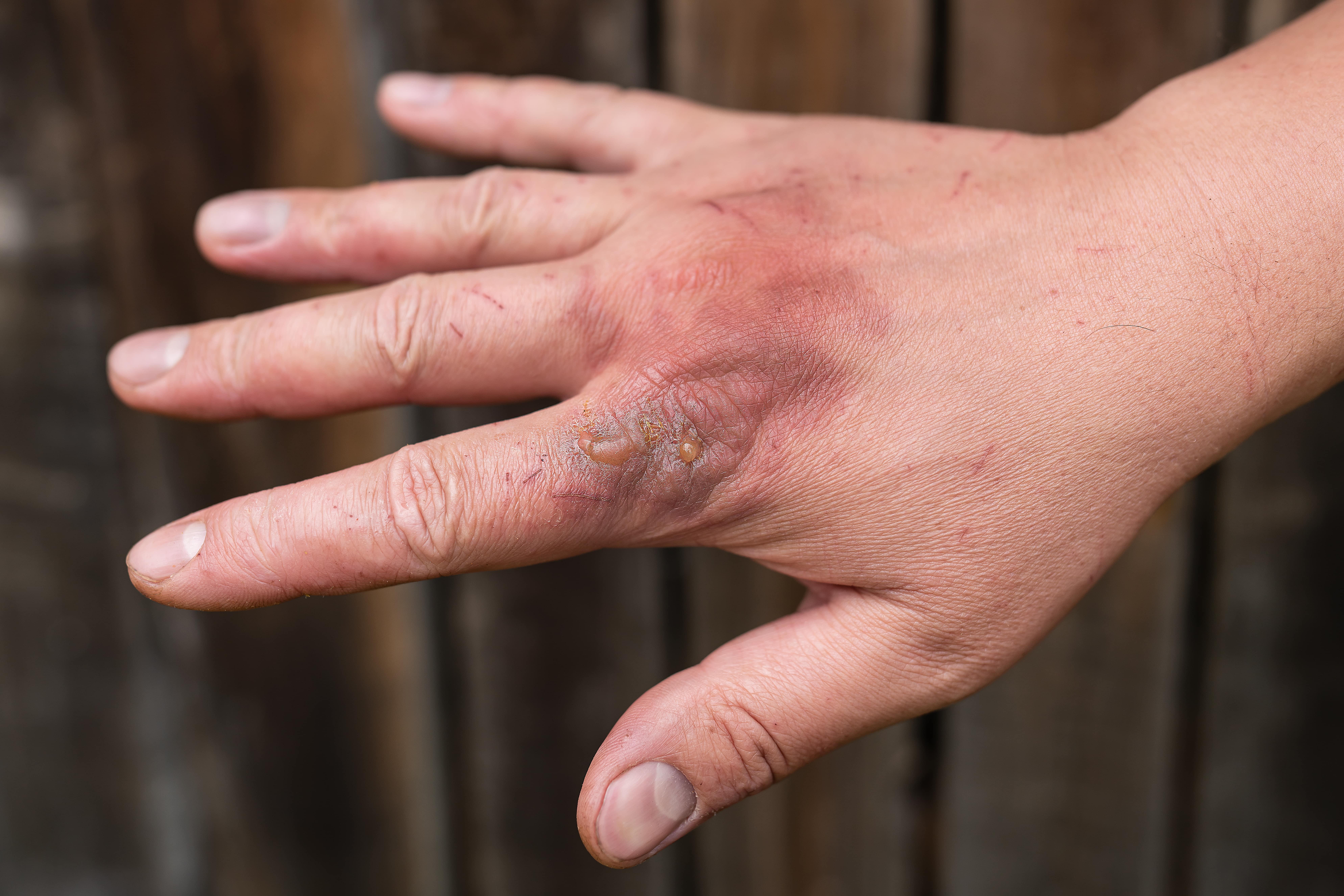The Danger of Scorpion Stings
Scorpion stings can be a painful and potentially dangerous experience. While most stings are mild and cause only localized pain and swelling, some can lead to severe reactions, especially in individuals who are allergic to scorpion venom. In rare cases, scorpion stings have even been reported to cause death.
The danger of a scorpion sting depends on several factors including the species of scorpion responsible for the sting, the location of the sting on the body, and individual sensitivity to scorpion venom. Certain species of scorpions have more potent venom than others and are more likely to cause severe reactions or even life-threatening conditions such as high blood pressure or roving eye movements.
Unveiling the Mysteries of Scorpion Stings: Dive into the World of Venom! Curious about scorpion stings and the fascinating world of venom? Discover the secrets behind these remarkable creatures by delving into our comprehensive article on scorpion sting and venom. Unveil the mysteries that lie within!
What is a Scorpion Sting?

A scorpion sting occurs when a scorpion’s stinger injects venom into the skin. The symptoms of a scorpion sting vary depending on the species of scorpions and individual sensitivity to their venom. Most bark scorpion stings cause mild symptoms such as pain, swelling, redness at the site of the sting.
However, in some cases, individuals may experience severe reactions to inject venom such as difficulty breathing or swallowing due to allergic reactions caused by proteins in the venom. Immediate medical attention should be sought if any signs of severe reactions occur after a bark scorpion sting or any other type known for its potent poison.
Seeking Medical Attention for Scorpion Stings
While most bee stings do not require medical attention beyond applying cool compresses over site affected areas and taking over-the-counter pain relievers like Ibuprofen or aspirin. Severe symptoms could require prompt medical care from an emergency room physician who might suggest receiving antivenom therapy or hospitalization with observation if necessary.
Poison control centers are also resources available to provide immediate assistance, especially for individuals with a higher risk of severe reactions from scorpion stings. In the next sections, we will discuss in detail how to identify scorpions responsible for stings, symptoms, how to treat a scorpion sting, look out for and first aid treatments available to manage scorpion stings.
Identify the Scorpion

Description of common scorpions in different regions
Scorpions are arachnids that belong to the same family as spiders, ticks, and mites. There are over 1,500 species of scorpions worldwide.
In the United States, 70 species of bark scorpions have been reported; however, only a few species have venom potent enough to pose a threat to human life. The bark scorpion is one of the most common types of scorpions in North America.
They are usually found in southwestern parts of the country and are typically light brown. Another common species is the striped bark scorpion, which is typically found in the southwestern and central parts of the country.
How to identify the type of scorpion that stung you
If you’ve been stung by a scorpion, it’s important to try to identify what type it was so that you can determine whether or not it poses a threat to your health. Most scorpions have eight legs and two claws at their front end.
They also have a tail with a curved tip that contains their stinger. Scorpions glow under UV light due to fluorescent chemicals on their exoskeletons.
If possible, take note of its size, coloration pattern and any unique features such as stripes or spines on its legs or tail. If you can’t identify it yourself then take pictures for reference if needed later on when seeking medical attention.
Identifying which type of scorpion has stung you can help determine whether or not immediate medical attention is necessary. Knowing what they look like and where they are commonly found will help avoid future encounters with these dangerous arachnids.
Symptoms of a Scorpion Sting

Scorpion stings can be extremely painful and cause a variety of symptoms, depending on the scorpion species, venom potency, and individual reactions. Common symptoms of most scorpion stings include:
- Pain or burning sensation at the site of the sting
- Swelling and redness around the sting area
- Numbness or tingling in the affected limb or body part
- Muscle jerking, spasms, or cramps
- Rapid eye movements (nystagmus)
- Hives or rash on the skin
In some cases, scorpion stings can cause other serious symptoms that require immediate medical attention. These may include:
- Difficulty breathing or swallowing
- Severe allergic reaction (anaphylaxis)
- Lightheadedness or fainting
- Vomiting or diarrhea
- Convulsions or seizures
- Organ failure
If you experience any of these symptoms after a scorpion sting, it is important to seek medical help right away.
When to Seek Medical Attention for a Scorpion Sting?
The severity of scorpion stings varies widely depending on factors such as age, health status and type of species. Most people will only experience mild symptoms that can be treated at home with simple remedies. If you are unsure about whether you need to see a healthcare provider after being stung by a scorpion, it is always best to err on the side of caution and seek medical attention if you are experiencing severe pain that does not improve with over-the-counter medications, or if you are experiencing any of the aforementioned symptoms.
It is especially important to get immediate medical attention if you are stung by a bark scorpion, which is the most venomous species in North America and can potentially be fatal. If you suspect that you have been stung by a bark scorpion sting or another dangerous species, call poison control for guidance and/or immediately go to the nearest emergency room.
First Aid Treatment for a Scorpion Sting

Cleaning the Wound
The first step in treating a scorpion sting is cleaning the wound. Use soap and warm water to thoroughly clean the area around the site of the sting. This helps remove any dirt, bacteria, or venom that may be present.
Avoid aggravating the wound by rubbing or scratching it. You can also use a sterile cloth or cotton pad to gently pat it dry.
Applying Ice or Cold Compress

After cleaning the wound, apply an ice pack or a cold compress to the affected area for about 20-30 minutes. This helps reduce swelling and pain because it restricts blood flow to the site of injury. Be sure to wrap the ice or cold pack up in a towel before applying it to avoid frostbite.
Applying cold can also help reduce symptoms like roving eye movements and jerky eye movements which are often associated with scorpion stings. It’s important not to use hot water on the wound because this can cause an increase of blood flow and lead to more serious complications.
Over-the-counter Pain Relievers
Over-the-counter pain relievers like ibuprofen can help alleviate local pain from scorpion stings. Nonsteroidal anti-inflammatory drugs (NSAIDs) such as aspirin, acetaminophen, naproxen sodium, or indomethacin may also be used. But if you have high blood pressure or other medical conditions that prevent you from taking certain types of painkillers, ask your healthcare provider about alternative options that are safe for you.
Remember that most scorpion stings don’t require emergency medical attention unless they cause serious symptoms such as difficulty breathing, allergic reactions with swollen throat and tongue, excessive sweating, blurred vision, and other neurological symptoms like convulsions leading into seizures etc. In the next section, we’ll explore some home remedies that can help alleviate the symptoms of a scorpion sting.
Home Remedies for a Scorpion Sting
Applying Vinegar or Baking Soda Paste
If you’ve been stung by a scorpion, it’s important to act quickly to reduce the pain and swelling. One simple and effective home remedy is to apply vinegar or baking soda paste directly to the sting site.
Both vinegar and baking soda can help neutralize the venom in a scorpion sting and reduce inflammation. To make a vinegar or baking soda paste, mix one tablespoon of either substance with enough water to make a thick paste.
Apply the paste directly to the sting site using your fingers or a clean cloth. Leave the paste on for at least 15 minutes before rinsing it off with cool water.
While vinegar and baking soda can be effective in reducing local pain and inflammation, they do not treat more severe symptoms such as roving eye movements or difficulty swallowing. If you experience serious complications from a scorpion sting, seek medical attention immediately.
Using Essential Oils like Lavender or Tea Tree Oil

In addition to vinegar and baking soda, certain essential oils like lavender or tea tree oil may also be helpful in treating scorpion stings. These oils have anti-inflammatory properties that can help reduce pain and swelling associated with insect bites. To use essential oils for scorpion stings, mix two drops of lavender oil or tea tree oil with one teaspoon of coconut oil or another carrier oil.
Apply the mixture directly to the sting site using your fingers or a cotton ball. Reapply every few hours as needed until symptoms subside.
It’s important to note that while essential oils may provide relief from local pain and inflammation caused by scorpion stings, they cannot treat more severe symptoms such as anaphylaxis caused by an allergic reaction. If you experience more serious symptoms, seek medical attention immediately.
Drinking Herbal Teas like Chamomile or Peppermint
Another way to reduce pain and inflammation caused by scorpion stings is to drink herbal teas like chamomile or peppermint. These teas have natural anti-inflammatory properties that can help soothe the sting site and reduce swelling.
To make chamomile or peppermint tea for scorpion stings, simply steep a tea bag in hot water for several minutes before drinking. You can also add honey or lemon to taste if desired.
While herbal teas can help reduce local pain and inflammation, they do not treat more severe symptoms such as jerky eye movements or inconsolable crying. If you experience serious complications from a scorpion sting, seek medical attention immediately.
Medical Treatment for Severe Scorpion Stings
Antivenom Therapy and Its Effectiveness

When it comes to severe scorpion stings, antivenom therapy can be a life-saving treatment. This type of therapy involves injecting antivenom into the bloodstream to neutralize the venom’s effects.
Antivenoms are created using antibodies from horses or sheep that have been exposed to specific scorpion venoms. It’s essential to understand that antivenom therapy is only used for severe reactions because it carries its risks.
The person receiving the treatment may experience an allergic reaction, and in very few deaths very rare cases, it can cause anaphylaxis. This is why antivenom therapy is only used in emergency medical care facilities where healthcare providers can monitor the patient closely.
It’s best to receive antivenom therapy within four hours of experiencing symptoms. Research has shown that early administration of antivenom significantly reduces the severity and length of recovery time from serious symptoms caused by scorpion stings.
Hospitalization and Observation
Hospitalization and observation are necessary for people who develop serious symptoms after a scorpion sting. This is especially true for older adults or people who have previously experienced allergic reactions to insect bites or stings.
The standard protocol for hospitalization includes monitoring vital signs, administering pain relief medication, and providing fluid support if needed. People who experience muscle jerking hives, thick tongue, or rapid eye movements may need additional medications like benzodiazepines or corticosteroids.
During hospitalization, healthcare providers will continue to monitor symptoms and provide appropriate interventions as needed until symptoms improve enough to discharge from medical care. Most scorpion stings cause mild symptoms that resolve with time and self-care measures like applying cool compresses or taking over-the-counter pain relievers.
However, severe reactions can occur in some individuals that require antivenom therapy or emergency medical care. It’s essential to take steps to avoid scorpion stings and seek prompt medical attention if a die from a scorpion sting occurs.
Prevention Tips for Avoiding Scorpion Stings
How to avoid scorpions in your home and yard
Scorpions are common in many regions around the world, and they can enter your home through small cracks or openings, so it is essential to seal these areas. Keep doors and windows closed to prevent scorpions from entering your house; repair any damages on the walls or windows that may allow scorpions to hide an entry.
Use a high-quality sealant around doors, windows, and other openings that lead outside. If you live in an area with a high risk of scorpions, investing in professional pest control services is wise.
They will help you identify potential entry points for scorpions into your home and offer effective solutions to keep them away. Keeping your outdoor area clean also helps prevent an infestation of scorpions.
Remove debris such as rocks, woodpiles, and leaves from near structures on your property. This process reduces hiding places for these creatures.
Protective clothing and gear when outdoors
When outdoors in areas known for scorpion toxicity, it’s vital to wear protective clothing. Wear closed-toe shoes or boots with long pants tucked into socks when hiking or walking on trails. If you’re going camping ensure keep the campsite area clear of any debris where hiding places can be found by these dangerous insects.
You can also protect yourself with gear like gloves when gardening or handling rocks or woodpiles that could be hiding places for scorpions. Keep a flashlight handy at night while going out as they are more active during this time.
Going barefoot is not advisable as it increases the risk of stepping on a hidden one which may cause subsequent stings. Although prevention is the best defense against scorpion stings, accidents do happen, so always need first aid items, and over-the-counter painkillers like ice packs, and cold compresses in case of an emergency.
Recap of key points on treating a scorpion sting
Scorpion stings can be painful and potentially dangerous. However, most stings can be treated at home with simple first aid measures such as cleaning the wound, applying cool compresses, and taking over-the-counter pain relievers. It is important to seek emergency medical care if any other serious symptoms develop.
Identification of the species of scorpions that live in your area will help you determine the potential danger of a sting and what type of medical treatment may be necessary. Some species like bark scorpions are more venomous than others.
If you are unsure about the type of scorpion that stung you, it is best to seek medical attention immediately. Prevention is key when it comes to avoiding scorpion stings.
Keeping your home clean and free of clutter can prevent these creatures from nesting indoors. Wearing protective clothing and gear when outdoors is also highly recommended.
While a scorpion sting can be painful and potentially dangerous, prompt action with appropriate first aid measures will usually resolve the issue without complications. However, if you experience any severe reactions such as muscle jerking or trouble breathing, it is important to seek emergency medical care immediately.
Remember that other insect bites like tarantula bites or other symptoms like hives or severe allergic reactions that may resemble a scorpion sting but require different treatment approaches including tetanus shot administration or medication intervention by health professionals. Stay safe out there!
Combat Scorpions with D-Termination: The foremost pest control service in Las Vegas

If you have concerns about scorpions infiltrating your Las Vegas property, fear not, as D-Termination is here to provide a solution. Our team of experts specializes in eliminating these venomous pests, ensuring the restoration of safety and peace in your space. Bid farewell to scorpion worries and make the choice of selecting D-Termination for effective pest control today!
To book your scorpion control service and reclaim your space from these unsettling pests, reach out to us at 702-919-6310 or visit dtermination.com.
Frequently Asked Questions:
To neutralize a scorpion sting, clean the area, apply a cold compress, and take over-the-counter pain relievers if necessary.
The duration of a scorpion sting can vary, but symptoms usually subside within a few hours to a few days.
The initial first aid treatment for a scorpion bite includes cleaning the area, applying a cold compress, and seeking medical attention if severe symptoms occur.
If a scorpion sting goes untreated, it can result in worsening symptoms, such as increased pain, swelling, and potential complications, especially for individuals who may have allergic reactions or encounter venomous species.
If this article piqued your interest, you might also find these related pieces captivating:
Stung and Suffering: Understanding the Duration of Scorpion Stings
Scorpion Venom: The Mysterious and Deadly Weapon of These Arachnids








